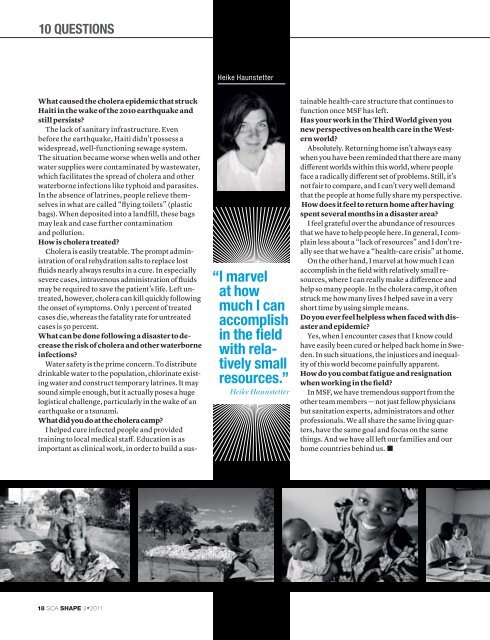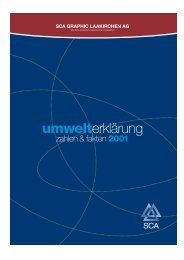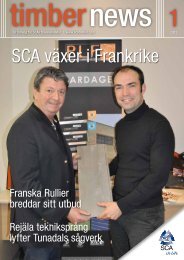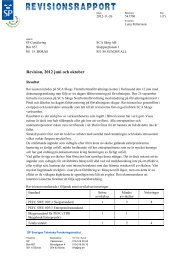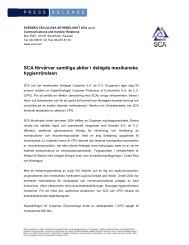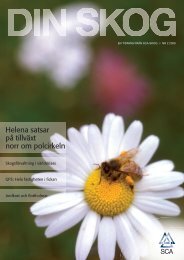You also want an ePaper? Increase the reach of your titles
YUMPU automatically turns print PDFs into web optimized ePapers that Google loves.
10 QUESTIONS<br />
What caused the cholera epidemic that struck<br />
Haiti in the wake of the 2010 earthquake and<br />
still persists?<br />
The lack of sanitary infrastructure. Even<br />
before the earthquake, Haiti didn’t possess a<br />
widespread, well-functioning sewage system.<br />
The situation became worse when wells and other<br />
water supplies were contaminated by wastewater,<br />
which facilitates the spread of cholera and other<br />
waterborne infections like typhoid and parasites.<br />
In the absence of latrines, people relieve themselves<br />
in what are called “flying toilets” (plastic<br />
bags). When deposited into a landfill, these bags<br />
may leak and case further contamination<br />
and pollution.<br />
How is cholera treated?<br />
Cholera is easily treatable. The prompt administration<br />
of oral rehydration salts to replace lost<br />
fluids nearly always results in a cure. In especially<br />
severe cases, intravenous administration of fluids<br />
may be required to save the patient’s life. Left untreated,<br />
however, cholera can kill quickly following<br />
the onset of symptoms. Only 1 percent of treated<br />
cases die, whereas the fatality rate for untreated<br />
cases is 50 percent.<br />
What can be done following a disaster to decrease<br />
the risk of cholera and other waterborne<br />
infections?<br />
Water safety is the prime concern. To distribute<br />
drinkable water to the population, chlorinate existing<br />
water and construct temporary latrines. It may<br />
sound simple enough, but it actually poses a huge<br />
logistical challenge, particularly in the wake of an<br />
earthquake or a tsunami.<br />
What did you do at the cholera camp?<br />
I helped cure infected people and provided<br />
training to local medical staff. Education is as<br />
important as clinical work, in order to build a sus-<br />
18 <strong>SCA</strong> SHAPE 3<strong>2011</strong><br />
Heike Haunstetter<br />
“ I marvel<br />
at how<br />
much I can<br />
accomplish<br />
in the field<br />
with relatively<br />
small<br />
resources.”<br />
Heike Haunstetter<br />
tainable health-care structure that continues to<br />
function once MSF has left.<br />
Has your work in the Third World given you<br />
new perspectives on health care in the Western<br />
world?<br />
Absolutely. Returning home isn’t always easy<br />
when you have been reminded that there are many<br />
different worlds within this world, where people<br />
face a radically different set of problems. Still, it’s<br />
not fair to compare, and I can’t very well demand<br />
that the people at home fully share my perspective.<br />
How does it feel to return home after having<br />
spent several months in a disaster area?<br />
I feel grateful over the abundance of resources<br />
that we have to help people here. In general, I complain<br />
less about a “lack of resources” and I don’t really<br />
see that we have a “health-care crisis” at home.<br />
On the other hand, I marvel at how much I can<br />
accomplish in the field with relatively small resources,<br />
where I can really make a difference and<br />
help so many people. In the cholera camp, it often<br />
struck me how many lives I helped save in a very<br />
short time by using simple means.<br />
Do you ever feel helpless when faced with disaster<br />
and epidemic?<br />
Yes, when I encounter cases that I know could<br />
have easily been cured or helped back home in Sweden.<br />
In such situations, the injustices and inequality<br />
of this world become painfully apparent.<br />
How do you combat fatigue and resignation<br />
when working in the field?<br />
In MSF, we have tremendous support from the<br />
other team members — not just fellow physicians<br />
but sanitation experts, administrators and other<br />
professionals. We all share the same living quarters,<br />
have the same goal and focus on the same<br />
things. And we have all left our families and our<br />
home countries behind us.


